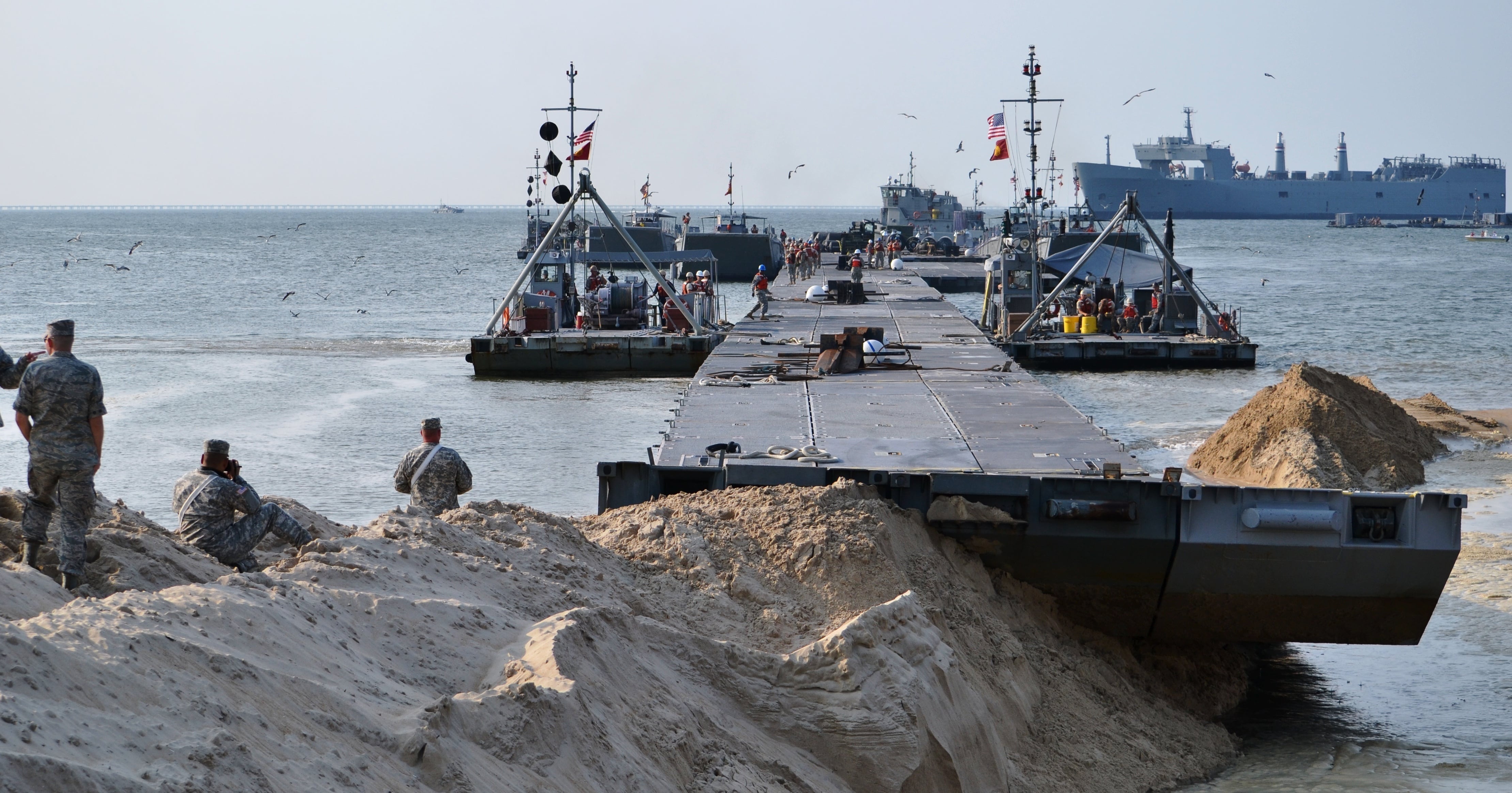The Pentagon released details Friday of its plans to construct a temporary pier off the Gaza Strip’s coast to help flow more than 2 million meals a day into the territory, using an established military capability that officials say can build and deploy the structure without having any American troops on the ground.
Over the next 60 days, roughly 1,000 troops will deploy to the Mediterranean Sea to build a floating platform where cargo ships can offload aid onto smaller military vessels, which will transfer them to a causeway attached to the beach, where trucks can pick it up and distribute it within Gaza, Air Force Maj. Gen. Pat Ryder, a Pentagon spokesman, told reporters.
“The concept that is being planned involves the presence of U.S. military personnel on military vessels offshore, but does not require U.S. military personnel to go ashore,” Ryder said.
President Joe Biden first announced the effort on Thursday night during the State of the Union Address.
The capability, dubbed Joint Logistics Over-The-Shore, has most recently been used during Exercise Talisman Sabre, Ryder said, an annual event based in Australia.
The modular causeway will be assembled offshore and driven to the beach, where it will be anchored ashore.
RELATED

The Pentagon is identifying units to deploy to the Mediterranean to start construction, he added, which will include soldiers from the 7th Transportation Brigade at Joint Base Langley-Eustis, Virginia.
What remains to be hammered out is how U.S. Central Command will be able to protect both the offshore pier and the causeway itself from attacks by Hamas, though Ryder said Israel is part of the planning process and could provide security through its own forces.
“If Hamas truly does care about the Palestinian people, then again, one would hope that this international mission to deliver aid to people who need it would be able to happen and unhindered,” Ryder said.
The causeway has the potential to increase the amount of aid flowing into Gaza by several orders of magnitude, supplementing trucks arriving daily through the border with Israel, as well as ongoing air drops by the U.S. military.
The U.S. carried out its fourth drop of aid via C-130 Hercules on Friday, Ryder said. Each plane carries about the same amount of aid as a truck does over land. Though at points during the Israel-Hamas war, up to 200 aid trucks drove into Gaza daily, the Pentagon said Monday that the pace has dropped to 100 or fewer trucks a day.
RELATED

The temporary port has the potential to pick up some of the slack, Jonathan Lord, senior fellow at the Center for a New American Security, told Military Times on Friday, but with the same distribution concerns as aid arriving over land.
“How do you get aid not just onshore, but then securely distributed, such that it goes to everyone who needs it, and isn’t otherwise blocked in by Hamas insurgents, criminal gangs, vigilantes or others that might be taking advantage of emerging security vacuums?” he said.
Non-government organizations, the United Nations and other regional partners could be tapped to accept and distribute the aid ashore, Ryder said, though those details aren’t finalized.
Another issue is the inspection process for aid, which has slowed down the flow in land shipments.
“If you ask, the Israelis would argue that they, in fact, are not the bottleneck. They are inspecting more trucks than are actually going in on a day-to-day basis,” Lord said. “And when you ask them to what do they attribute that delta, they would say that the groups operating in Gaza don’t have enough drivers.”
Others, including two U.S senators, say Israel’s “cumbersome” and “arbitrary” inspection process is holding things up, comments the lawmakers made after a trip to Egypt to observe the Rafah border crossing in January.
“So that poses a question: Is, in fact, the problem one of a deficit of aid or deficit of aid distribution?” Lord said. “Likely, we’re going to find out, because if you can bring containerships worth of aid up to Gaza, you’re going to find out very quickly what your logistical supply line and your interior lines look like, and whether you have the capacity to effectively distribute it, in pretty short order.”
In any case, Lord said, the U.S. will continue to pressure the Israeli government to ease restrictions on incoming aid, as well as open up more land crossings, as Biden mentioned in his speech Thursday night.
Meghann Myers is the Pentagon bureau chief at Military Times. She covers operations, policy, personnel, leadership and other issues affecting service members.





